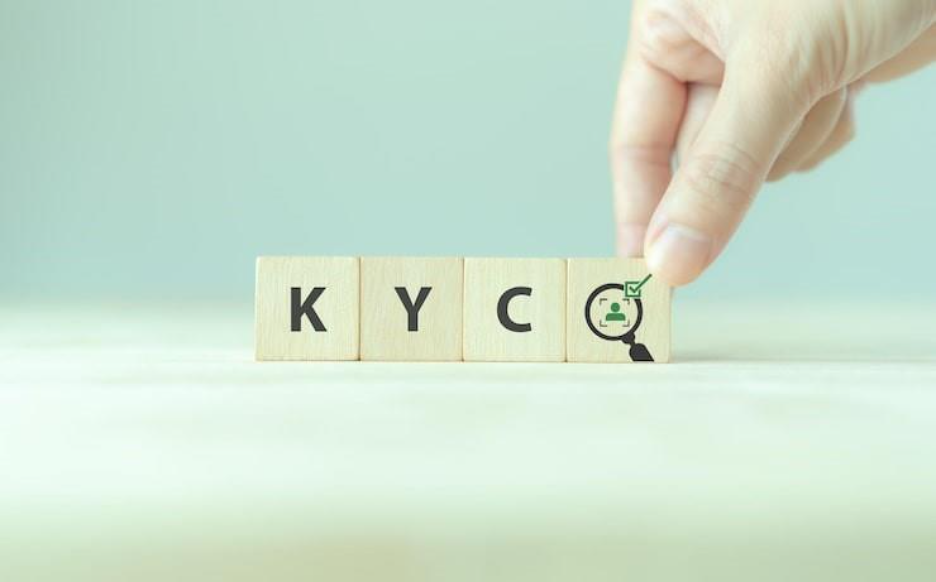
Each year, between $800 billion and $2 trillion is laundered through the global financial system. Behind these numbers are shell companies, synthetic identities, and cross-border fraud networks that threaten even the most sophisticated financial institutions.
In this landscape, compliance is no longer just about avoiding fines — it’s about preserving trust. Two pillars define that trust: KYC (Know Your Customer) and KYB (Know Your Business).
These verification frameworks are the foundation of modern AML (Anti-Money Laundering) and CTF (Counter-Terrorism Financing) programs. They prevent bad actors from entering the system, protect financial integrity, and prove to regulators that organizations operate responsibly.
Understanding the difference between KYC and KYB, how they overlap, and how automation reshapes both, is now essential for every compliance officer, banker, investor, and fintech executive.
BusinessScreen.com helps global enterprises integrate these processes seamlessly — combining AI-powered verification, UBO discovery, and predictive due diligence into one unified compliance ecosystem.
KYC (Know Your Customer) is the process of verifying and validating the identity of an individual before a business relationship begins. It ensures that every client — whether an investor, account holder, or beneficiary — is legitimate, financially transparent, and not linked to illicit activity.
KYC begins with identity collection: government-issued documents, proof of address, and financial background information. These details are cross-checked against global databases, including sanctions lists, politically exposed persons (PEP) registers, and adverse media monitoring tools.
Modern KYC goes far beyond manual checks. Artificial intelligence and machine learning now automate document recognition, biometric matching, and fraud detection. This technology reduces verification time from days to seconds, while maintaining accuracy and auditability.
For banks and fintech companies, KYC is required at every stage — from account opening and loan approval to investment screening and cross-border transfers. It’s also becoming essential in non-financial industries such as insurance, real estate, and supply chain management.
Through BusinessScreen.com’s digital identity verification platform, organizations instantly confirm authenticity, detect synthetic identities, and remain fully compliant with FATF, FinCEN, and EU AMLD standards.

Where KYC focuses on individuals, KYB (Know Your Business) verifies legal entities and their ownership structures. KYB ensures the companies you engage with are real, registered, and operating lawfully — not acting as fronts for money laundering, sanctions evasion, or corruption.
The process begins with validating incorporation details, registration documents, and tax records. From there, institutions identify Ultimate Beneficial Owners (UBOs) — the true individuals who ultimately control or benefit from the company. Uncovering these hidden stakeholders prevents criminals from concealing their identities behind layers of shell entities.
KYB also involves analyzing the business’s financial behavior, geographic exposure, and industry risks. Combined with ongoing monitoring, it helps compliance teams detect ownership changes or emerging sanctions ties in real time.
Unlike KYC, KYB is more data-intensive and often involves global registry lookups, multilingual records, and manual cross-referencing.
BusinessScreen.com’s Beneficial Ownership Verification platform automates this complexity — mapping multi-tiered ownership structures across jurisdictions, connecting to over 200 global registries, and continuously updating records to meet evolving AML regulations.
KYC and KYB share the same ultimate goal: preventing financial crime and ensuring compliance. However, their focus and execution differ fundamentally.
In practice, both processes converge. When onboarding a corporate client, financial institutions conduct KYB checks on the entity and KYC checks on its owners and directors. Together, they create a 360° compliance view that protects organizations from fraud, sanctions exposure, and reputational risk.
BusinessScreen.com unifies both workflows in a single system, streamlining onboarding while maintaining regulatory precision.
Regulatory expectations are tightening globally. The Financial Action Task Force (FATF) now emphasizes beneficial ownership verification, urging member countries to maintain accessible, centralized UBO databases. In the United States, FinCEN’s Corporate Transparency Act (CTA) enforces new mandates for private companies to disclose their beneficial owners.
Across Europe, the EU’s AML Authority (AMLA) standardizes due diligence requirements across all member states, focusing on risk-based KYB and continuous monitoring. Meanwhile, Asia-Pacific regulators like MAS (Singapore) and AUSTRAC (Australia) are implementing digital KYC mandates to align with FATF recommendations.
In 2025, no region can rely on manual verification. Automation has become the baseline standard for compliance credibility. Organizations using unified KYC/KYB solutions like BusinessScreen.com are equipped not just to meet these evolving laws, but to anticipate them — ensuring agility, transparency, and trust.
Even as automation advances, challenges persist across industries and borders. Compliance teams face mounting pressure to manage data, detect risk, and maintain efficiency — all while minimizing customer friction.
BusinessScreen.com addresses these pain points with AI-powered continuous monitoring, global registry integrations, and machine-learning models that prioritize real threats while minimizing false alerts.
Artificial intelligence and automation are revolutionizing compliance efficiency. Machine-learning models now parse identity data, detect anomalies, and assess risk exposure across millions of records simultaneously.
Automation has shortened onboarding cycles by up to 80%, while blockchain-based audit trails ensure transparency and tamper-proof verification records. By integrating AI, institutions can move from reactive compliance to predictive due diligence — identifying suspicious behavior before it becomes a liability.
At BusinessScreen.com, our proprietary algorithms unify KYC, KYB, and AML intelligence into one predictive platform. This approach allows compliance teams to focus on decision-making instead of data collection — turning verification into an opportunity for operational growth.

BusinessScreen.com brings together digital onboarding, UBO verification, sanctions screening, and risk analytics under a single automated ecosystem. Our platform enables banks, fintechs, insurers, and enterprises to conduct compliant, scalable verification with minimal friction.
Each onboarding workflow is customized by risk tier and regulatory framework. Through flexible API integrations, clients connect instantly to over 100 trusted databases, streamlining verification and audit documentation.
BusinessScreen.com also supports ongoing monitoring, ensuring that changes in ownership, sanctions status, or reputational risk are detected automatically. This continuous surveillance protects organizations from unseen threats while keeping them aligned with FATF, FinCEN, and EU AMLA regulations.
For compliance officers and investors alike, this isn’t just automation — it’s control, transparency, and future-proof compliance in one dashboard.
Automation is not just a technological upgrade; it’s a strategic necessity. By combining artificial intelligence with global data intelligence, automation allows institutions to achieve consistency, speed, and accuracy without inflating cost.
These benefits extend beyond compliance — they redefine customer trust and streamline global partnerships.
With BusinessScreen.com, compliance becomes not just a requirement but a competitive differentiator that accelerates global business relationships.
A leading global fintech processed more than 50,000 business verifications per month. Before automation, its manual KYB reviews caused delays and customer frustration. After adopting BusinessScreen.com, onboarding time dropped by 70%, and compliance accuracy rose to 99.3%.
Meanwhile, a multinational insurer implemented BusinessScreen.com’s digital KYC solution, reducing fraud attempts by 60% while improving user experience scores. These examples highlight how AI-driven compliance systems create measurable business value and reputational resilience. Get pricing now.
What does KYC/KYB mean?
KYC (Know Your Customer) verifies individuals, while KYB (Know Your Business) verifies companies and their ownership structures for AML compliance.
How much do KYC and KYB checks cost?
KYC checks typically cost between $0.30 and $5. KYB checks can range from $5 to several thousand dollars, depending on investigation depth and country of registration.
Why are KYB checks critical for fintech and B2B platforms?
KYB ensures that vendors, partners, and corporate clients are legitimate, preventing exposure to sanctions and money laundering risks.
What role does AI play in compliance?
AI automates identity verification, analyzes transaction patterns, and flags suspicious anomalies faster and more accurately than manual methods.
How does BusinessScreen.com help with KYC and KYB?
BusinessScreen.com unifies KYC, KYB, and AML into one automated platform that accelerates onboarding, ensures global compliance, and continuously monitors risk.
In 2025 and beyond, KYC and KYB form the backbone of modern compliance. They protect organizations from fraud, financial loss, and reputational harm while establishing credibility with regulators and clients.
As global regulations evolve, businesses must embrace technology that turns compliance into an asset. Platforms like BusinessScreen.com make that possible — enabling real-time onboarding, continuous monitoring, and predictive due diligence that keeps organizations one step ahead of risk.
Learn More:
Explore Due Diligence Background Checks or discover our KYC and KYB Compliance Solutions at BusinessScreen.com, where smart compliance meets scalable innovation.